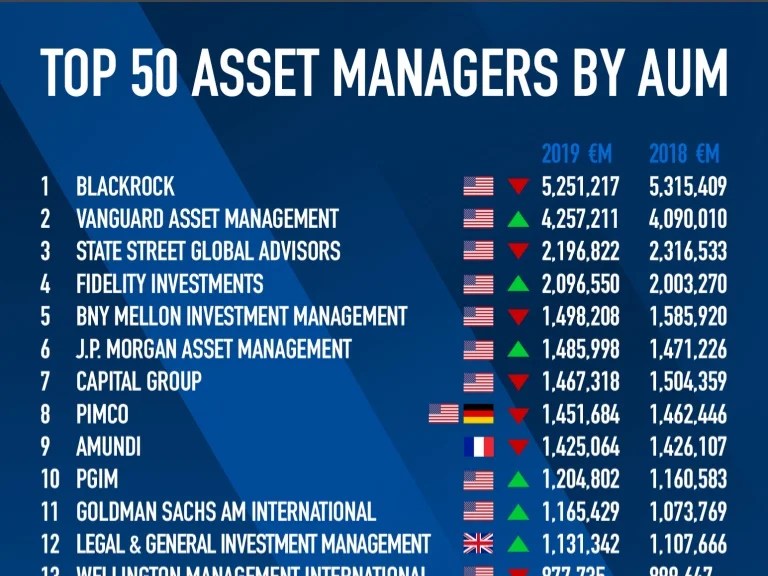Yo, check it – we’re diving deep into the world of asset management firms. Get ready for a wild ride filled with financial know-how and investment insights that’ll blow your mind!
Let’s break it down and explore everything you need to know about these crucial players in the financial world.
Overview of Asset Management Firms
Asset management firms play a crucial role in the financial markets by helping individuals and institutions manage their investments effectively. These firms are responsible for overseeing a variety of assets on behalf of their clients, aiming to maximize returns while minimizing risks.
Types of Assets Managed
- Equities: Stocks or shares representing ownership in a company.
- Bonds: Debt securities issued by governments or corporations.
- Real Estate: Properties and land holdings.
- Commodities: Physical goods like gold, oil, or agricultural products.
Key Functions of Asset Management Firms
- Portfolio Management: Creating and managing investment portfolios tailored to clients’ goals and risk tolerance.
- Financial Analysis: Conducting research and analysis to make informed investment decisions.
- Risk Management: Identifying and mitigating potential risks to protect clients’ investments.
- Client Services: Providing personalized advice and support to meet clients’ financial objectives.
Importance in Investment Portfolios
Asset management firms are essential for diversifying and optimizing investment portfolios. By leveraging their expertise and resources, these firms help investors navigate the complex financial markets and achieve their long-term financial goals.
Services Offered by Asset Management Firms

Asset management firms offer a wide range of services to help individuals and institutions manage their investments and achieve their financial goals. These firms specialize in creating and implementing investment strategies tailored to their clients’ needs and risk tolerance.
Investment Planning and Portfolio Management
- Asset allocation and diversification strategies to optimize returns and manage risks.
- Regular monitoring and rebalancing of investment portfolios to ensure alignment with financial goals.
- Customized investment plans based on client’s objectives, time horizon, and risk profile.
Financial Advisory Services
- Personalized financial advice on retirement planning, tax efficiency, estate planning, and wealth preservation.
- Recommendations on investment products such as mutual funds, ETFs, stocks, and bonds.
- Guidance on asset protection and insurance solutions to mitigate risks.
Wealth Management and Private Banking
- Comprehensive wealth management services for high-net-worth individuals and families.
- Access to exclusive investment opportunities, private banking services, and specialized financial planning.
- Integration of financial, tax, and estate planning to maximize wealth growth and legacy preservation.
Investment Strategies of Asset Management Firms
Asset management firms employ a variety of investment strategies to help their clients achieve their financial goals. These strategies are carefully crafted based on market conditions, client risk tolerance, and investment objectives.
Active vs. Passive Investing
Active investing involves frequent buying and selling of securities in an attempt to outperform the market. Asset managers who follow this strategy rely on research, market trends, and their expertise to make investment decisions. On the other hand, passive investing involves tracking a specific market index, such as the S&P 500, and maintaining a portfolio that mirrors the index. This strategy aims to match the market performance rather than beat it.
Diversification
Diversification is a key strategy used by asset management firms to reduce risk. By spreading investments across different asset classes, industries, and geographic regions, asset managers aim to minimize the impact of a downturn in any single investment. This helps protect the overall portfolio from significant losses.
Asset Allocation
Asset allocation is another crucial strategy employed by asset management firms. This involves determining the right mix of stocks, bonds, cash, and other assets based on the client’s risk tolerance and investment goals. Asset managers continuously monitor and adjust the allocation to ensure it remains aligned with the client’s objectives.
Risk Management
Risk management is an integral part of investment strategies used by asset management firms. Asset managers assess the risk associated with each investment and implement techniques to mitigate potential losses. Techniques may include setting stop-loss orders, using derivatives for hedging, and closely monitoring market conditions to make timely adjustments.
Regulatory Environment for Asset Management Firms
The regulatory framework governing asset management firms plays a crucial role in ensuring the integrity and stability of the financial markets. These regulations are put in place to protect investors, maintain transparency, and prevent fraudulent activities within the industry.
Compliance Requirements for Asset Management Firms
Asset management firms are required to adhere to strict compliance requirements set forth by regulatory bodies such as the Securities and Exchange Commission (SEC) in the United States. These requirements encompass various aspects of the firm’s operations, including disclosure of information to clients, risk management practices, and record-keeping procedures. Failure to comply with these regulations can result in severe penalties and sanctions.
- Asset management firms must provide clients with clear and accurate information about their investment strategies, fees, and potential risks associated with investing.
- They are required to establish robust internal controls and risk management procedures to mitigate potential conflicts of interest and safeguard client assets.
- Regular reporting and disclosure requirements must be followed to ensure transparency and accountability in the firm’s operations.
Role of Regulatory Bodies in Overseeing Asset Management Activities
Regulatory bodies such as the SEC and the Financial Industry Regulatory Authority (FINRA) play a crucial role in overseeing asset management activities to protect investors and maintain market integrity. These bodies conduct regular examinations and audits of asset management firms to ensure compliance with regulations and detect any potential violations.
Compliance with regulatory requirements is essential for asset management firms to operate legally and maintain the trust of their clients and the broader financial market.